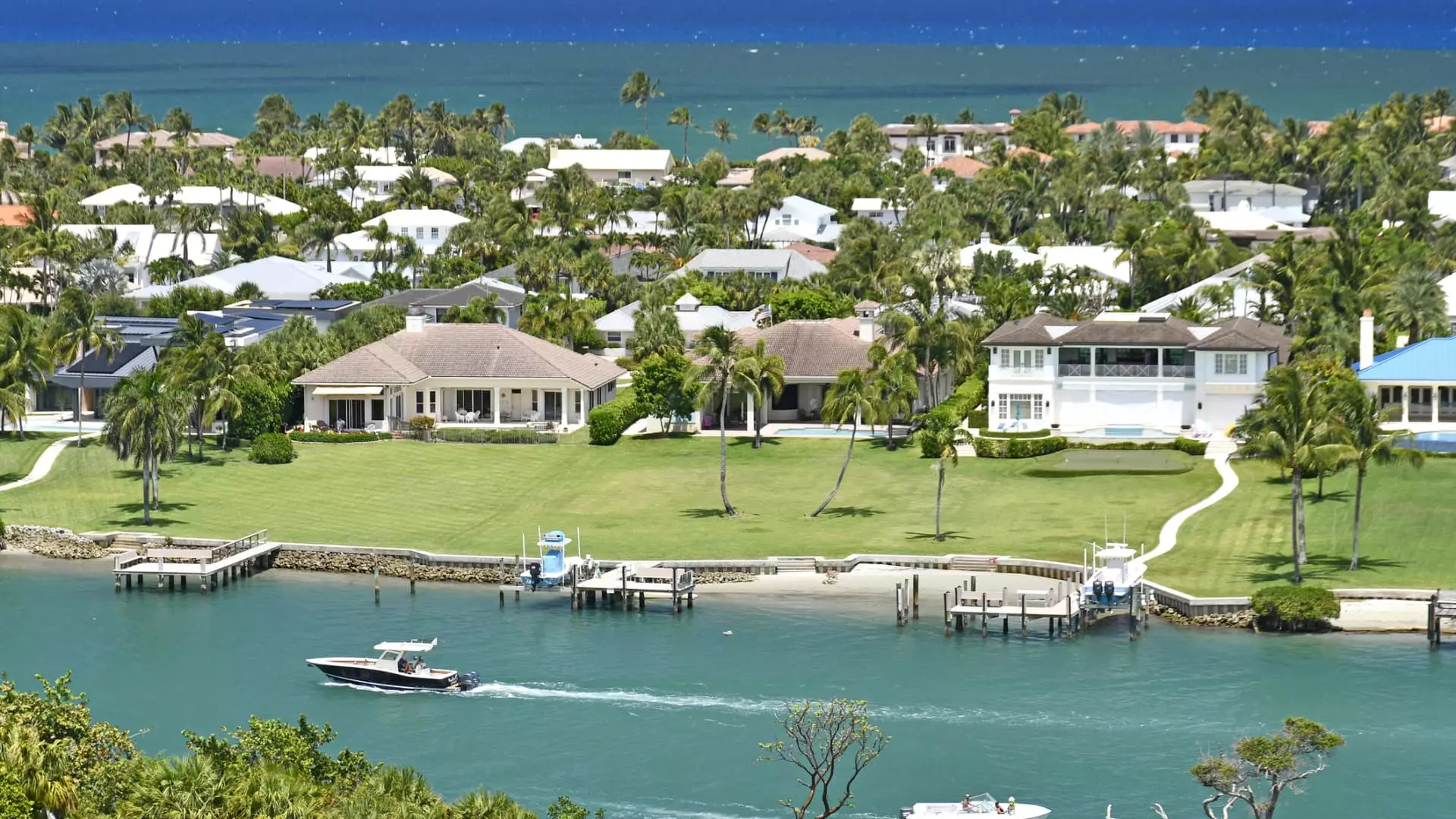The luxury real estate market is not what it used to be, and the emerging divide is impossible to ignore. Recent data from Coldwell Banker and insight from numerous agents reveal a stark contrast between ultra-high-net-worth individuals—those worth upwards of $30 million—and the less wealthy segment of the affluent class. While the ultra-rich continue to make bold, cash-heavy purchases without hesitation, those with less capital are increasingly cautious, constrained by rising interest rates and economic unease.
This divide is more than just a matter of bank balances; it underscores a fundamental shift in how wealth influences consumer behavior in uncertain times. For ultra-wealthy buyers, cash acts as a powerful tool—cutting through financing hurdles and enabling rapid, low-risk transactions. On the other hand, affluent buyers, despite having substantial means, are not insulated from market volatility and borrowing costs. Their hesitance highlights the precarious role of “wealth” when it isn’t absolute or liquid.
Why Cash Is King in an Era of Rising Borrowing Costs
Interest rates have soared to levels that make traditional borrowing less appealing, and this dynamic has turbocharged all-cash purchases among the ultra-wealthy. The advantage here is clear: purchasing without a mortgage circumvents the costs and delays associated with financing, giving cash buyers a decisive edge in negotiations and deal speed. Jason Waugh, president of Coldwell Banker Affiliates, captures this sentiment succinctly: if you have cash, why take on expensive debt?
This preference for cash transactions skews the market in ways that not only benefit the rich but create barriers for every other buyer category. The ability to close quickly with cash reinforces a cycle where properties move faster to buyers who can afford to pay upfront, leaving those requiring financing sidelined or compelled to accept less favorable terms.
Luxury Real Estate as a Hedge Amid Uncertainty
Despite recent stock market volatility and looming fears of recession, luxury real estate remains an attractive refuge for wealth preservation. Over two-thirds of agents report their clients are either maintaining or increasing their real estate holdings, suggesting that high-net-worth individuals see tangible property as a bulwark against inflation and financial market turbulence. Unlike equities, real estate is a hard asset with perennial value, offering not just shelter but a symbol of stability and prestige.
Still, the market is not immune to economic tremors. Luxury sales dipped notably in May 2025, especially for attached properties, pointing towards short-term sensitivity to broader financial anxieties. Price reductions and more discerning buyers also speak to a maturing market where opulence alone no longer guarantees a sale without catering to the exacting tastes of the modern luxury consumer.
A Market Shaped by Insecurity and Selectivity
A fascinating insight emerges from the evolving demands of luxury buyers, especially newcomers to the segment. Today’s buyers are not merely chasing grandeur but smart, functional luxury—integrating technology, wellness, and seamless indoor-outdoor living. From spa-level amenities to top-end appliances, these buyers expect properties to justify premium price tags with lifestyle enhancements that resonate with contemporary values of comfort, convenience, and holistic wellbeing.
This shift toward selectivity exposes a broader trend: the luxury real estate market has transitioned from one driven by status symbols to one shaped by sophisticated consumer preferences and economic pragmatism. While the ultra-wealthy might still see real estate as a playground for conspicuous consumption, even they are increasingly attentive to value and quality in their investments.
Implications for the Future of Luxury Housing
The socioeconomic divide within the luxury real estate sector is a microcosm of the broader wealth disparities permeating society. Access to capital—particularly liquid capital—is rapidly becoming the defining factor between those who can thrive amid economic uncertainty and those who merely survive. In a sense, the ultra-wealthy are insulated by their ability to pay cash, using their liquidity as a shield and weapon in a turbulent market, while others must navigate borrowing hurdles that dampen their ambitions and restrict market participation.
This dynamic risks accelerating inequality within a market already associated with exclusivity. More concerning is the potential feedback loop where rising economic fragility among less wealthy buyers leads to increased caution, reducing market fluidity and innovation. The question remains whether luxury real estate will continue to democratize access to wealth accumulation or further entrench the privileges of an already small elite. The answer will have profound consequences, not just for real estate, but for society at large.


Leave a Reply